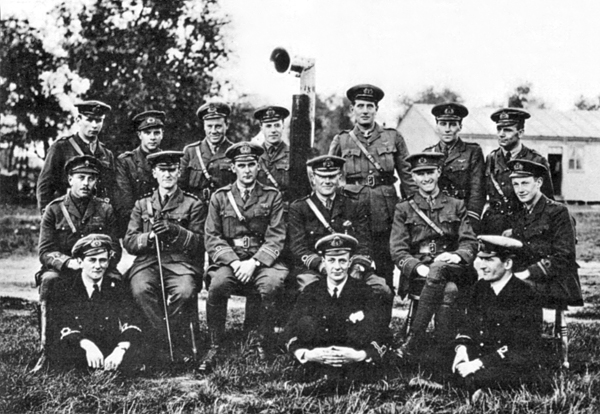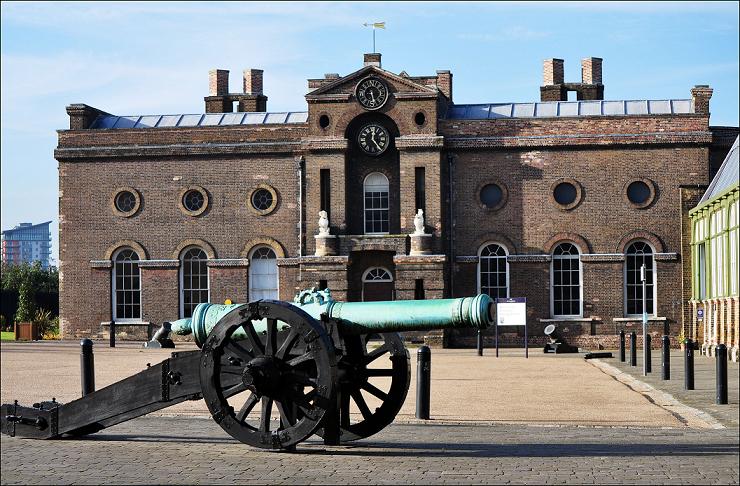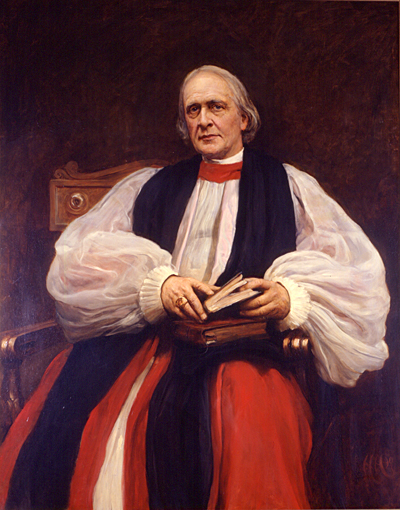|
Michael Knatchbull
Michael Herbert Rudolf Knatchbull, 5th Baron Brabourne, (8 May 1895 – 23 February 1939) was a British peer and soldier, the son of the 4th Baron Brabourne. Early life Born on 8 May 1895 to Cecil Knatchbull-Hugessen, 4th Baron Brabourne, and his wife Helena Flesch von Brunningen (an Austrian noblewoman), as Michael Herbert Rudolf Knatchbull-Hugessen, he dropped the Hugessen part of his surname by deed poll in June 1919. Knatchbull was educated at Wellington College and the Royal Military Academy, Woolwich. Military career Knatchbull was commissioned as a second lieutenant in the Royal Artillery on 17 November 1914. He served in the Gallipoli Campaign from April 1915, attached to No. 3 Squadron, Royal Naval Air Service, flying artillery spotting missions, receiving promotion to lieutenant on 23 July. On 22 September 1915 he received a mention in despatches from General Ian Hamilton, Commander-in-Chief of the Mediterranean Expeditionary Force, and on 8 November was awarded t ... [...More Info...] [...Related Items...] OR: [Wikipedia] [Google] [Baidu] |
His Excellency
Excellency is an honorific style (manner of address), style given to certain high-level officers of a sovereign state, officials of an international organization, or members of an aristocracy. Once entitled to the title "Excellency", the holder usually retains the right to that courtesy throughout their lifetime, although in some cases the title is attached to a particular office, and is held only for the duration of that office. Generally people addressed as ''Excellency'' are head of state, heads of state, head of government, heads of government, governors, ambassadors, Bishops in the Catholic Church, Roman Catholic bishops and high-ranking ecclesiastics and others holding equivalent rank (e.g., heads of international organizations). Members of royal family, royal families generally have distinct addresses (Majesty, Highness, etc.) It is sometimes misinterpreted as a title of office in itself, but in fact is an honorific that precedes various titles (such as Mr. President (ti ... [...More Info...] [...Related Items...] OR: [Wikipedia] [Google] [Baidu] |
Norton Knatchbull, 6th Baron Brabourne
Norton Cecil Michael Knatchbull, 6th Baron Brabourne (11 February 192215 September 1943), was a British peer and soldier, the son of The 5th Baron Brabourne, Governor of Bengal. Early life Knatchbull was educated at Eton College and the Royal Military College, Sandhurst, and served briefly as a soldier in The Buffs (The Royal East Kent Regiment) in 1940 before being commissioned into the Grenadier Guards during the Second World War. Capture and death Lord Brabourne was wounded and captured by the Germans in Italy in 1943. On his way to captivity in Germany he tried to escape from the prison train at Bronzolo, a village in South Tyrol, together with Arnold Guy Vivian The ''Arnold Book of Old Songs'' is a collection of English, Scottish, Irish, Welsh and French folk songs and traditional songs, with new piano accompaniments by Roger Quilter. Quilter dedicated it to and named it after his nephew Arnold Guy Viv ..., a fellow officer in the 6th Battalion, Grenadier Guards. Both w ... [...More Info...] [...Related Items...] OR: [Wikipedia] [Google] [Baidu] |
Royal Naval Air Service
The Royal Naval Air Service (RNAS) was the air arm of the Royal Navy, under the direction of the Admiralty's Air Department, and existed formally from 1 July 1914 to 1 April 1918, when it was merged with the British Army's Royal Flying Corps to form the Royal Air Force (RAF), the world's first independent air force. It was replaced by the Fleet Air Arm, initially consisting of those RAF units that normally operated from ships, but emerging as a separate unit similar to the original RNAS by the time of World War 2. Background In 1908, the British Government recognised the military potential of aircraft. The Prime Minister of the United Kingdom, Prime Minister, H. H. Asquith, approved the formation of an "Advisory Committee for Aeronautics" and an "Aerial Sub-Committee of the Committee of Imperial Defence". Both committees were composed of politicians, British Army, army officers and Royal Navy officers. On 21 July 1908 Captain Reginald Bacon, who was a member of the Aerial Na ... [...More Info...] [...Related Items...] OR: [Wikipedia] [Google] [Baidu] |
Knatchbull M (capt The Hon) Collection Q44341
Knatchbull is a surname. The surname Knatchbull has the meaning "knock out the bull", i.e. butcher.Cottle, Basil (1967) ''The Penguin Dictionary of Surnames''. Harmondsworth: Penguin Books; p. 160 Notable people with the surname include: * Adrian Knatchbull-Hugessen * Alexandra Knatchbull * Dora Knatchbull, married name of Dora Bright (1862–1951), English composer and pianist * Doreen Knatchbull, Baroness Brabourne * Edward Knatchbull (other), various people * Edward Knatchbull-Hugessen, 1st Baron Brabourne * John Knatchbull, 7th Baron Brabourne * Leonora Knatchbull * Michael Knatchbull * Michael Knatchbull, 5th Baron Brabourne * Nicholas Knatchbull * Norton Knatchbull (other), various people * Patricia Knatchbull, 2nd Countess Mountbatten of Burma Patricia Edwina Victoria Knatchbull, 2nd Countess Mountbatten of Burma, Lady Brabourne, (née Mountbatten; 14 February 1924 – 13 June 2017) was a British peeress and a third cousin of Queen Elizabeth II. She w ... [...More Info...] [...Related Items...] OR: [Wikipedia] [Google] [Baidu] |
Royal Military Academy, Woolwich
The Royal Military Academy (RMA) at Woolwich, in south-east London, was a British Army military academy for the training of commissioned officers of the Royal Artillery and Royal Engineers. It later also trained officers of the Royal Corps of Signals and other technical corps. RMA Woolwich was commonly known as "The Shop" because its first building was a converted workshop of the Woolwich Arsenal. History Origins in the Royal Arsenal An attempt had been made by the Board of Ordnance in 1720 to set up an academy within its Arsenal (then known as the Warren) to provide training and education for prospective officers of its new Regiment of Artillery and Corps of Engineers (both of which had been established there in 1716). A new building was being constructed in readiness for the Academy and funds had been secured, seemingly, through investment in the South Sea Company; but the latter's collapse led to plans for the Academy being placed on hold. After this false start, the acade ... [...More Info...] [...Related Items...] OR: [Wikipedia] [Google] [Baidu] |
Wellington College (Berkshire)
Wellington College is a public school (English independent day and boarding school) in the village of Crowthorne, Berkshire, England. Wellington is a registered charity and currently educates roughly 1,200 pupils, between the ages of 13 and 18, per annum. The college was built as a national monument to the first Duke of Wellington (1769–1852), in whose honour it is named. Queen Victoria laid the foundation stone in 1856 and inaugurated the School's public opening on 29 January 1859. Many former Wellington pupils fought in the trenches during the First World War, a conflict in which 707 of them lost their lives, many volunteering for military service immediately after leaving school. A further 501 former pupils were killed in action in the Second World War. The school is a member of the Rugby Group of 18 British public schools and is also a member of the G20 Schools group. History Wellington College was granted a royal charter in 1853 as "''The Royal and Religious Found ... [...More Info...] [...Related Items...] OR: [Wikipedia] [Google] [Baidu] |
Deed Poll
A deed poll (plural: deeds poll) is a legal document binding on a single person or several persons acting jointly to express an intention or create an obligation. It is a deed, and not a contract because it binds only one party (law), party. Etymology The term "deed", also known in this context as a "specialty", is common to signed written undertakings not supported by consideration: the seal (even if not a literal wax seal but only a notional one referred to by the execution formula, "signed, sealed and delivered", or even merely "executed as a deed") is deemed to be the consideration necessary to support the obligation. "Poll" is an archaic legal term referring to documents with straight edges; these distinguished a deed binding only one person from one affecting more than a single person (an "indenture", so named during the time when such agreements would be written out repeatedly on a single sheet, then the copies separated by being irregularly torn or cut, i.e. "indented", ... [...More Info...] [...Related Items...] OR: [Wikipedia] [Google] [Baidu] |
Cecil Knatchbull-Hugessen, 4th Baron Brabourne
Cecil Marcus Knatchbull-Hugessen, 4th Baron Brabourne (27 November 1863 – 15 February 1933) was an English cricketer, and later a British peer. Knatchbull-Hugessen was born in Lowndes Square in Chelsea, the fourth child and second son of Edward Knatchbull-Hugessen, 1st Baron Brabourne and his first wife, Anna Maria Elizabeth ( Southwell). He was educated at Eton College where he was in the cricket XI from 1881 to 1883.Obituary - Lord Brabourne, ''The Times'', 16 February 1933, pg. 14.Brabourne Supplementary List of Deaths in 1931–32 and 1933, '''', 1935. Retrieved 14 October 2008. He went up to |
Soldier
A soldier is a person who is a member of an army. A soldier can be a conscripted or volunteer enlisted person, a non-commissioned officer, or an officer. Etymology The word ''soldier'' derives from the Middle English word , from Old French or , meaning mercenary, from , meaning shilling's worth or wage, from or , shilling. The word is also related to the Medieval Latin , meaning soldier (literally, "one having pay"). These words ultimately derive from the Late Latin word , referring to an Ancient Roman coin used in the Byzantine Empire. Occupational designations In most armies use of the word "soldier" has taken on a more general meaning due to the increasing specialization of military occupations that require different areas of knowledge and skill-sets. As a result, "soldiers" are referred to by names or ranks which reflect an individual's military occupation specialty arm, service, or branch of military employment, their type of unit, or operational employment or technic ... [...More Info...] [...Related Items...] OR: [Wikipedia] [Google] [Baidu] |
British Peerage
The peerages in the United Kingdom are a legal system comprising both hereditary and lifetime titles, composed of various noble ranks, and forming a constituent part of the British honours system. The term '' peerage'' can be used both collectively to refer to the entire body of nobles (or a subdivision thereof), and individually to refer to a specific title (modern English language-style using an initial capital in the latter case but not the former). British peerage title holders are termed peers of the Realm. The peerage's fundamental roles are ones of government, peers being eligible (although formerly ''entitled'') to a seat in the House of Lords, and of meritocracy, the receiving of any peerage being the highest of British honours (with the receiving of a more traditional hereditary peerage naturally holding more weight than that of a more modern, and less highly regarded, ''life'' peerage). In the UK, five peerages or peerage divisions co-exist, namely: * The Peerag ... [...More Info...] [...Related Items...] OR: [Wikipedia] [Google] [Baidu] |
Military Cross
The Military Cross (MC) is the third-level (second-level pre-1993) military decoration awarded to officers and (since 1993) other ranks of the British Armed Forces, and formerly awarded to officers of other Commonwealth countries. The MC is granted in recognition of "an act or acts of exemplary gallantry during active operations against the enemy on land" to all members of the British Armed Forces of any rank. In 1979, the Queen approved a proposal that a number of awards, including the Military Cross, could be recommended posthumously. History The award was created on 28 December 1914 for commissioned officers of the substantive rank of captain or below and for warrant officers. The first 98 awards were gazetted on 1 January 1915, to 71 officers, and 27 warrant officers. Although posthumous recommendations for the Military Cross were unavailable until 1979, the first awards included seven posthumous awards, with the word 'deceased' after the name of the recipient, from rec ... [...More Info...] [...Related Items...] OR: [Wikipedia] [Google] [Baidu] |






